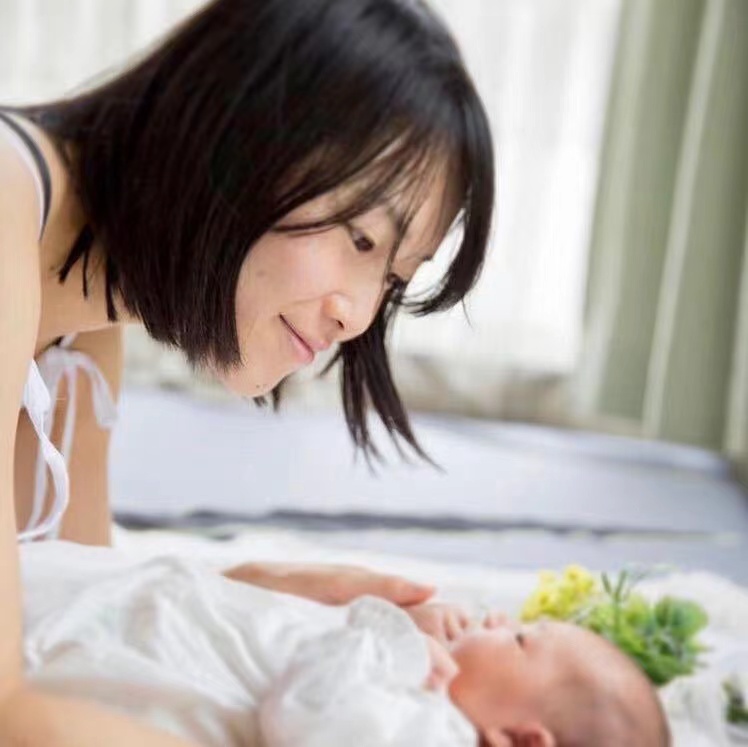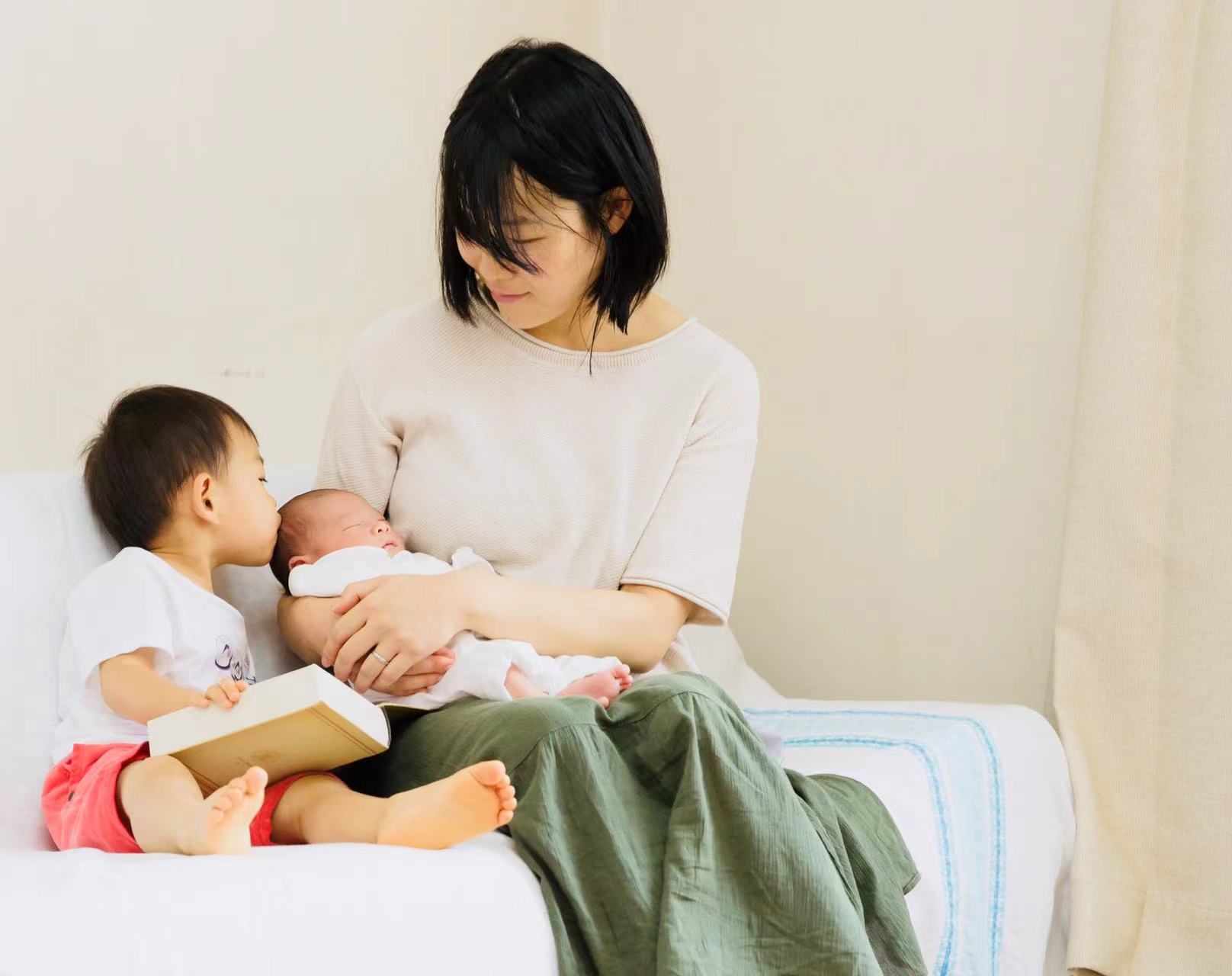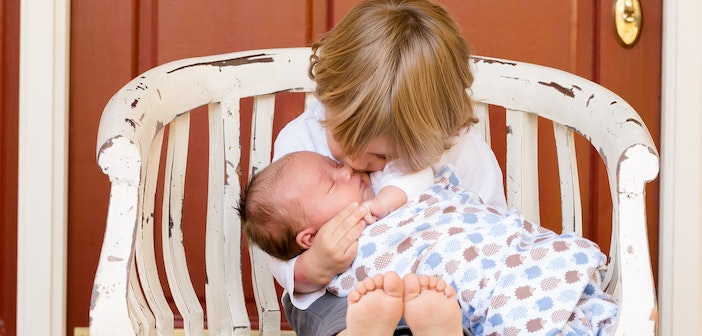Every parent can say “yes, we love our child” but can we all say that we respect our child? It’s a strange question to ask, especially when they’re babies. Respect them, how? Respect their decision? Ok, but what happens when my one-year-old doesn’t want to brush her teeth or change her poopy diaper? Do I respect her decision and let her sit in her own filth? Of course not! Respecting your baby doesn’t mean letting them do whatever they want. But it does mean that you explain to them what and why an action is done.
I first heard about RIE (pronounced “rye” like the bread) from a mommy friend Miao Lu whose now 5-year-old daughter was brought up with RIE parenting methods. As Miao helped change a diaper for a one-year-old, they had a most interesting conversation. “Okay Savannah, I’m going to change your diaper now. I’m going to wipe your bum and give you a new clean diaper.” Miao looked genuinely interested to be changing a poopy diaper and Savannah was engaged, possibly confused as to why an adult would be so happy to wipe her bum, listening to the step-by-step process for the first time. Throughout the whole ordeal the two were engaged in the process of diaper changing.

Developed by Magda Gerber in 1978, RIE believed that babies are born with phenomenal learning abilities, unique gifts, deep thoughts, and emotions. We, as parents, should not rush to conclusions but instead, should enhance our awareness by observing them — allowing them the space they need to show us who they are and what they need.
To explain RIE better, we reached out to Kumiko Akiyama, a mom of two who completed RIE® Practicum group-care training and now trains Beijing’s parents on RIE parenting. “I believe that RIE works for parents, because they can learn a practical method to allow their infants and toddlers to demonstrate their confidence and competence” Kumiko tells Jingkids.
“Before, I was often anxious about my parenting skills. I worried that I was not providing enough so I used to keep a busy schedule with educational activities for my children. When my second child was about 10 months old, I attended RIE observation classes. And right away I knew that this approach would be beneficial for me and my children. During the class, I sat down on the floor and observed my daughter and other babies playing and interacting freely for 90 minutes. I could see that children were treated with respect in many ways. They were allowed to express their feelings, move freely, play and socialize without any interruption in a safe environment. As I discovered how authentic, confident and capable they were, I let go of my worries and found peace within me.”
To be honest, before seeing Miao’s diaper change, I had never heard of RIE. When it comes to early childhood parenting, parents tend to know more about the Montessori approach thanks to their great marketing. What make the two different?

Kumiko explains that RIE believes in uninterrupted play where children can play or interact with other children freely in a safe environment. “The play objects are open-ended and can be used in any creative ways. In Montessori, the work materials are prepared to achieve certain goals and teachers present how to use them first. Children have the freedom to choose which work they want to do. I believe that both approaches aim to develop children’s confidence and problem-solving skills, but there are different levels of choices, freedom and limits. Also, RIE is based on Magda Gerber’s “Educaring® Approach” which means: educating children through care. And there are particular ways to provide caregiving such as feeding, diapering and dressing etc.”
Last month Kumiko taught new parents a free diaper changing class. “I wanted to transform the daily diapering task into meaningful moments to build relationships with babies. I believe it works wonderfully for busy parents who seek to build a secure attachment and deeper connection with their babies. Before, I used to feel guilty for not spending enough quality time with two children, but I could make the daily caregiving into quality time with each child! I wanted parents to see how competent babies can be even during a diaper change. They can understand the routine, language and learn to participate by lifting up their bottoms or legs, or even help to throw away old diapers when they are older!” Kumiko tells us.
After attending the class and picking up new techniques, it subsequently translated in more than just the diaper changing aspect of our day. The entire RIE philosophy has encouraged more conversations as well as verbal and physical interactions between my daughter and I. It’s been less stressful and I’ve been able to watch her develop her own independence.
To learn more about RIE and take part in the classes in Beijing, Kumiko is here to help. There is an online RIE® Foundations Course to learn each principle deeply. For families in Beijing who seek support, Kumiko provides home visit observation and reviews the play and caregiving environment. She will also be organziing RIE introduction courses and caregiving workshops like the diaper changing one I attended. For those interested to learn more, add Kumiko on WeChat at kumikoakiyama.
Images: Kumiko Akiyama, Pexels




